[Editorial] The Age of Arcless Women: How ‘Telltales: The Walking Dead’ Depicts a Leading Lady Accurately
In 2016, the MeToo movement dominated headlines as Alyssa Milano created the following tweet inspired by Tarana Burke’s charity which was founded in 2006:
As we know, this tweet erupted as many individuals confessed their experiences. It could be debated that this event sparked Hollywood to shift their focus on the protagonists they were creating. Female characters in film and television have always been present; however, the MeToo movement birthed the discourse which revealed there were not enough independent women on screen. From this emerged a new age of women who were beginning to be written; the ‘strong’ female. It has recently captured my attention that this change in writing style is severely flawed. In the quest for equality, women in television and film – in my eyes – have been written in a way that strips them of their human and feminine qualities. These ‘strong’ female characters have embodied the characteristics which have been stereotypically male and heavily condemned. If men are and have been vilified for these behaviours, why are women now being celebrated for the same behaviour?
Upon this reflection, I began to think of an accurate representation of women on screen. My mind struggled to think about a leading lady who depicted femininity but also displayed the strength that the post MeToo female characters have failed to capture. I was unable to find a female who fits this criteria post 2016 until I extended my knowledge from films to videogames. It was then when I found the perfect representation.
The Walking Dead (2012 -2018) by Telltale is a video game series inspired by Robert Kirkman’s comic books of the same name. The visual novel-style game follows Clementine’s story through her survival during the apocalypse. When we first see her, she is a child and as the series progresses, she matures into a young adult. Essentially, we watch her come of age. Clementine’s characterisation is conflicting yet linear which – ultimately - renders her as a perfect representation of being a female during the apocalypse.
When we first meet her, she is an extremely aware yet shy eight-year-old girl. Of course, she is also childlike because she is – after all – a child. However, the adults in the game comment on her strength to survive the first few days of the apocalypse alone. Despite this, Lee – the protagonist of the first game and her career – continuously reminds others that she would not have been able to survive much longer on her own and is grateful he came across her. He immediately shuts down any room for others to forcefully stick the label of “strong” and “independent” on an eight-year-old child, unlike the narratives they are writing now about women. For instance, Wonder Woman 1984 (2020 dir. Patty Jenkins) undermines the growth and training that our protagonist experiences in the first film as they explicitly show Diana as a child suddenly being extremely able to overcome all obstacles placed before her to become a warrior which undoes what we have already seen. This is not the only example, there has been a rise in female leads who are “perfect” for the world they are in or situation they must face without any prior training or growth. Luke Skywalker is the main protagonist in the original Star Wars (1977- 1983 dirs. George Lucas, Irvin Kershner and Richard Marquand) trilogy who – over the course of this series – fails several times to master the force and lightsaber. However, Rey Skywalker from the Star Wars Sequel Trilogy (2015-2018 dirs. J.J. Abrams and Rain Johnson) is able to perform a Jedi mind trick without any training or prior knowledge of the skill. This teaches young girls that they are perfect the way they are and have everything they need within them to succeed. This is not a realistic portrayal of the world and sets young girls up for failure. This writing technique to create women to be “strong” does not allow for the audience to connect to the character, creates a disconnect with the audience and does not allow for an arc to occur. Good character writing must include a protagonist or antagonist that goes through a positive or negative character arc.
In the final act of the first game, Clementine is kidnapped by an unknown man who has been communicating with her on her walkie talkie. He has informed her that he has her parents alive, which the audience knows is not true. During his rescue of Clementine, Lee gets bitten and once Clementine finds this out, her heart is never the same again. She has no choice but to end Lee’s life before he turns into a walker and this decision affects Clementine throughout the rest of the game series. Over the course of a few days, Clementine loses whatever innocence she has left and is forced to become a young adult before her time. She becomes cautious of strangers and her surroundings and is able to fend for herself better than before because of her experiences. As a consequence of her decision to end Lee’s life before he turns into a zombie, she develops PTSD – due to her guilt of ‘killing Lee’ - in the final game. Clementine is deeply engulfed with the grief of the people she has loved and lost but also, grieving the life she could have had and the person she could have become. Through this natural progression of her characterisation, Clementine experiences the ultimate arc.
Some would argue that this arc emphasises the stereotype that women are emotional. However, numerous studies have shown that men and women report feeling emotions at about the same rate (Else-Quest et al., 2012). The difference between genders is that a majority of women share their emotions more openly with others while men use something called ‘emotional expression suppression’. Writers now use this stereotype to create women to reject their emotions to push their modern feminist agenda. For instance, Jodie Whittaker’s Doctor in Doctor Who dismisses emotions concerning the men around her. An example of this is when her elderly male companion confides in her regarding the grief of losing his partner and worries that his cancer might resurface. She disregards it completely, using the excuse that she is socially awkward, all the while having no problem in offering comfort to her female companion without a second thought should she need it. Moreover, when discussing her past lives, she proudly states that she has had an “upgrade” which is unfair and unbelievable. It is not a natural progression for a character who has spent over a thousand years as a man to not grieve for the life they had as a father, husband, grandfather and soldier. By writing women who reject this stereotype, writers have made women appear cold. Most importantly, they are painting a representation of women that displays that we do not care about men and their mental health. Clementine never fails to listen to others around her, regardless of age and gender. She encourages discussions revolving around feelings and offers kind words of reassurance or honesty to those who need it.
In the second game, Clementine is left with the responsibility of taking care of the last survivor of her group; a baby named AJ. In the third game, this child is taken away from Clementine as another group believe that a child could not possibly raise another child. As a result of this, Clementine goes to the end of the earth to find where they have taken her child and saves him, all while dealing with her PTSD. When we see them in the final game, we are able to see their relationship dynamic. Clementine is seventeen in the final game and her focus is not on surviving or her mental health but raising a child appropriately for the world they are in. This responsibility weighs heavily on her but she perseveres, prioritising AJ over everything she does.
Ultimately, Clementine’s role in the final game mirrors Lee’s in the first as she becomes a parental figure for AJ as Lee was for her. Some would argue that that rejects feminist ideals as she becomes Lee, a man. But, aren’t newer female leads like The Doctor, Cruella, Batwoman and Rey Skywalker clones of masculine traits that have been deemed as toxic? Clementine’s story only mirrors Lee’s in certain aspects but she does not fully personify his traits. Her arc is completely different and she has her own personality rooted in her humanity and femininity.
Clementine bears a striking resemblance to Sarah Conner in Terminator 2: Judgement Day (1991 dir. James Cameron). They both experience PTSD, do anything to protect their child and learn to be independent because of men who guided them to enhance their existing skills for the world set before them. They do not become men through their character arc. They are still very much femininity in their traits and this allows for the audience to feel connected to these characters as their development is a natural progression of their character. Motherhood is also something which writers are rejecting when it comes to creating female leads. As a woman who struggles with motherhood, I find it unacceptable to demonise motherhood for women who desire it. Women are women regardless if they are mothers or not and that, alongside many other factors, are things writers need to make note of when writing females.
In conclusion, it is safe to say that writers are currently aiming to reject stereotypes regarding women to create narratives that make women ‘powerful’, ‘strong’ and ‘independent’. From my perspective as a woman, it feels as if feminine qualities are being vilified and I am being told that in order to be a woman, I must become a man, belittle all men and have to be perfect from the get go. The irony is staggering considering this is what feminism has been trying to get away from for decades. Clementine’s characterization is a stark reminder of how drastically the industry has changed regarding female leads. If Clementine was created today, she would be reduced to her ethnicity, sexuality, gender and later on, her disability. People are more than these factors. They are their behaviors and it is okay to have these behaviors driven by our gender.


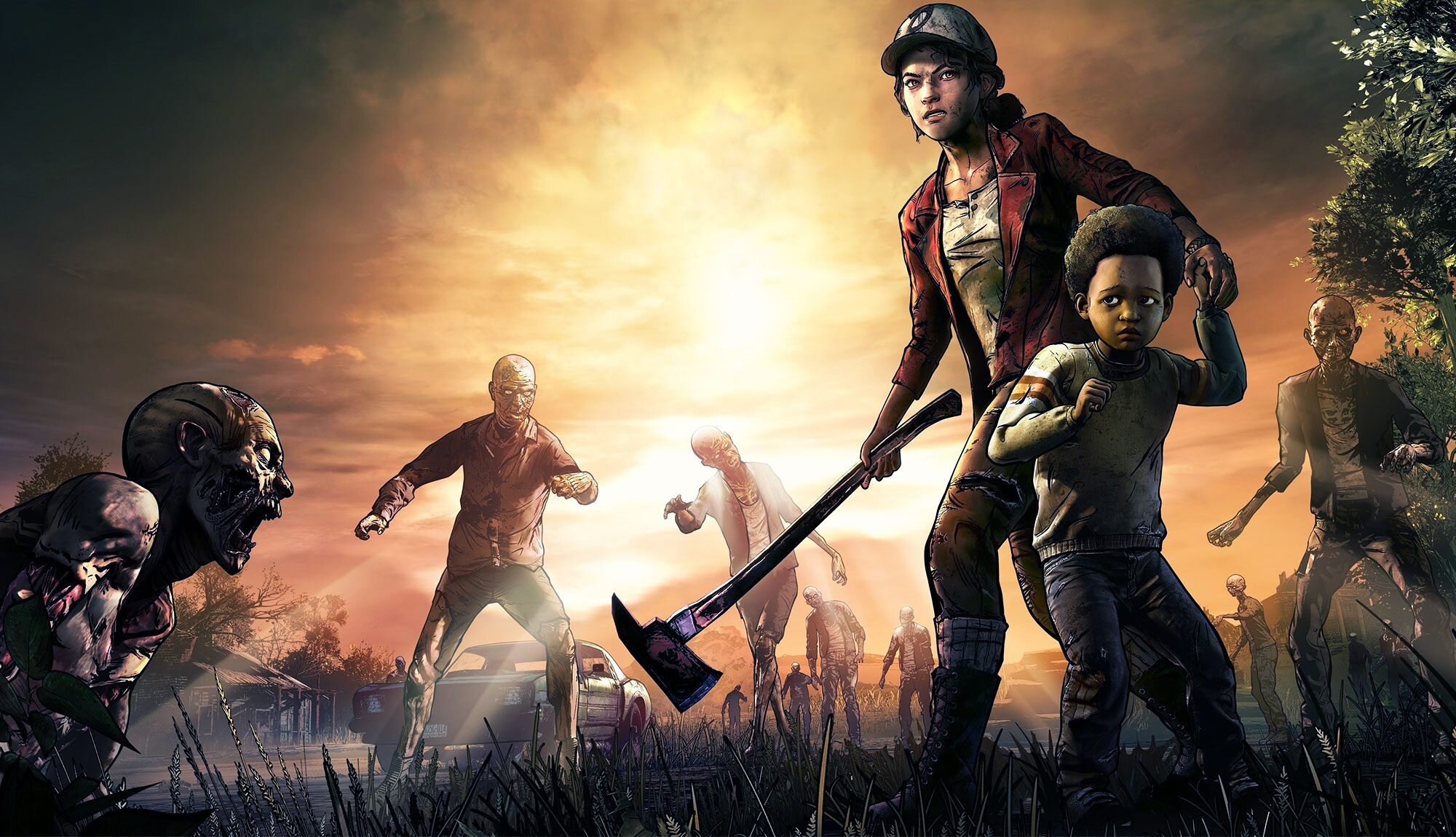
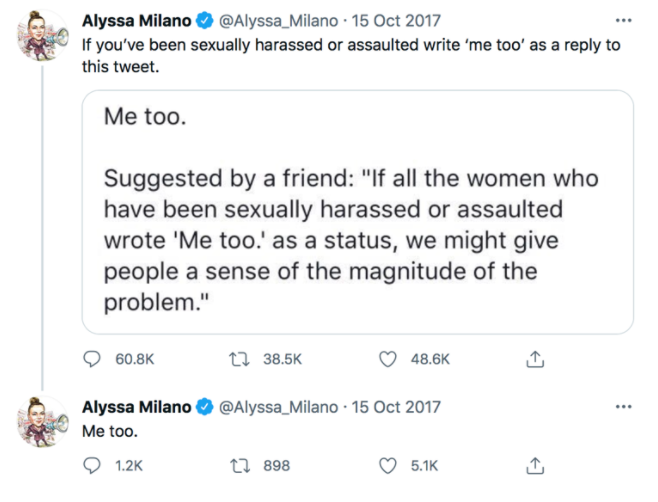
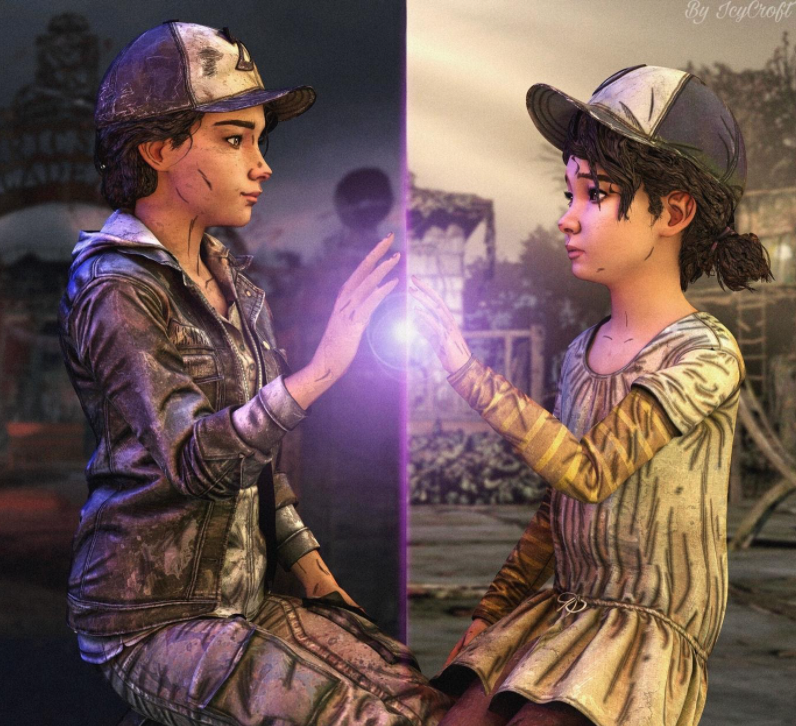
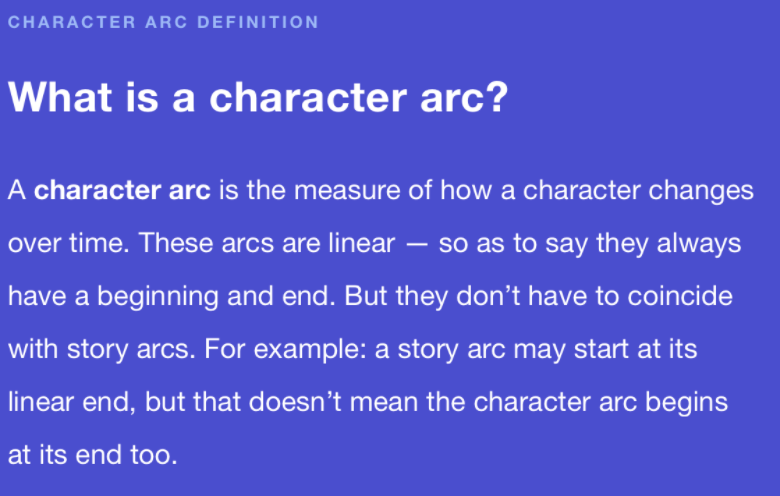
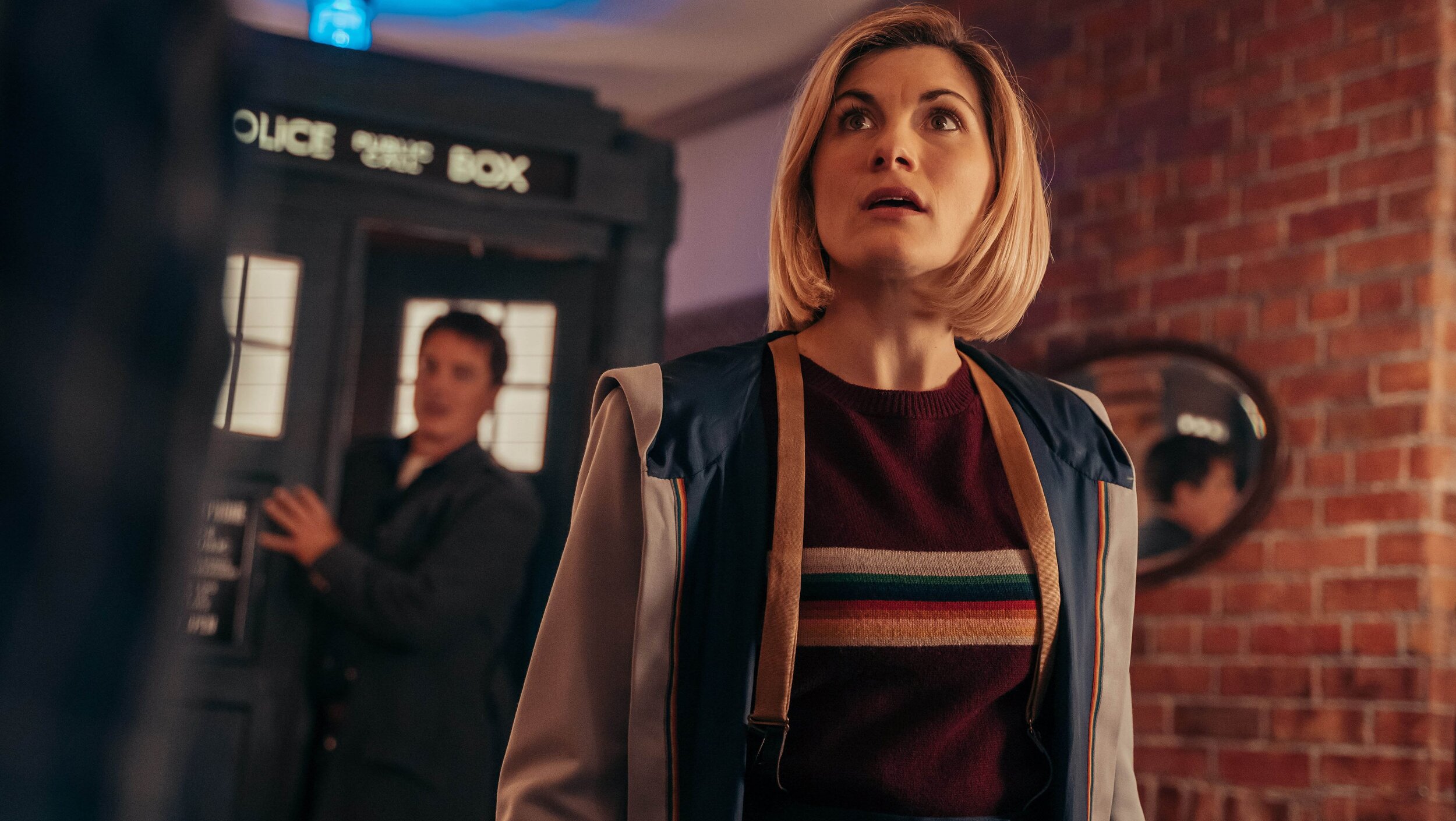
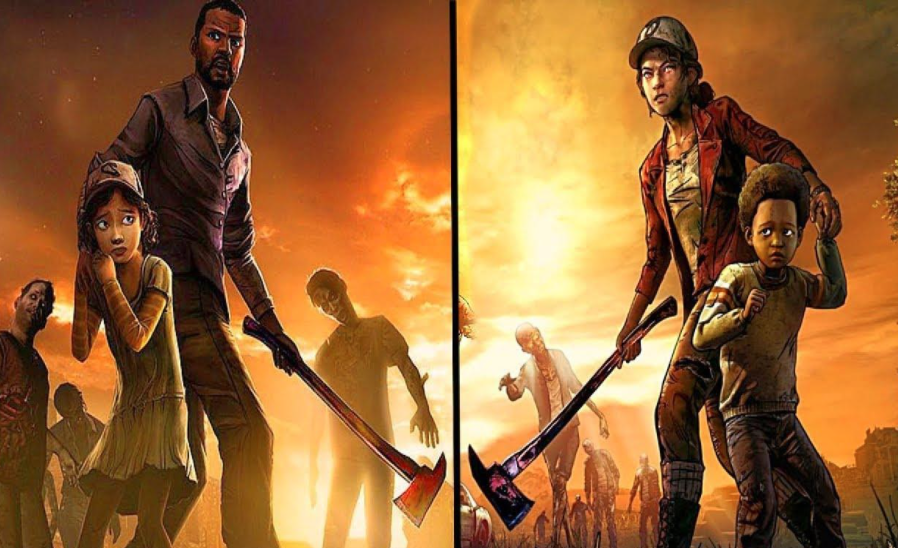

![[Editorial] In Her Eyes: Sara Lowes in Witchfinder General (1968)](https://images.squarespace-cdn.com/content/v1/5fe76a518d20536a3fbd7246/1655655953171-8K41IZ1LXSR2YMKD7DW6/hilary-heath.jpeg)
![[Editorial] The Babadook (2014)](https://images.squarespace-cdn.com/content/v1/5fe76a518d20536a3fbd7246/1651937631847-KR77SQHST1EJO2729G7A/Image+1.jpg)
![[Editorial] In Her Eyes: Helen Lyle in Candyman (1992)](https://images.squarespace-cdn.com/content/v1/5fe76a518d20536a3fbd7246/1649586854587-DSTKM28SSHB821NEY7AT/image1.jpg)
![[Editorial] Lorraine Warren’s Clairvoyant Gift](https://images.squarespace-cdn.com/content/v1/5fe76a518d20536a3fbd7246/1648576580495-0O40265VK7RN03R515UO/Image+1+%281%29.jpg)
![[Editorial] Sara in Creep 2 (2017)](https://images.squarespace-cdn.com/content/v1/5fe76a518d20536a3fbd7246/1646478850646-1LMY555QYGCM1GEXPZYM/27ebc013-d50a-4b5c-ad9c-8f8a9d07dc93.jpg)
![[Editorial] Sally Hardesty in The Texas Chainsaw Massacre (1974)](https://images.squarespace-cdn.com/content/v1/5fe76a518d20536a3fbd7246/1637247162929-519YCRBQL6LWXXAS8293/the-texas-chainsaw-final-girl-1626988801.jpeg)
![[Editorial] Margaret Robinson: Hammer’s Puppeteer](https://images.squarespace-cdn.com/content/v1/5fe76a518d20536a3fbd7246/1630075489815-33JJN9LSGGKSQ68IGJ9H/MV5BMjAxMDcwNDI2Nl5BMl5BanBnXkFtZTcwOTMxODgzMQ%40%40._V1_.jpg)
![[Editorial] Re-assessing The Exorcist: Religion, Abuse, and The Rise of the Feminist Mother.](https://images.squarespace-cdn.com/content/v1/5fe76a518d20536a3fbd7246/1629995626135-T5K61DZVA1WN50K8ULID/image2.jpg)
![[Editorial] Unravelling Mitzi Peirone’s Braid (2018)](https://images.squarespace-cdn.com/content/v1/5fe76a518d20536a3fbd7246/1628359114427-5V6LFNRNV6SD81PUDQJZ/4.jpg)
![[Editorial] American Psycho (2000)](https://images.squarespace-cdn.com/content/v1/5fe76a518d20536a3fbd7246/1627317891364-H9UTOP2DCGREDKOO7BYY/american-psycho-bale-1170x585.jpg)






















![[Editorial] 10 Films & Events to Catch at Soho Horror Film Fest 2023](https://images.squarespace-cdn.com/content/v1/5fe76a518d20536a3fbd7246/1700819417135-299R7L4P0B676AD3RO1X/Screenshot+2023-11-24+at+09.41.52.png)
![[Editorial] 9 Horror Nintendo Switch Games To Play](https://images.squarespace-cdn.com/content/v1/5fe76a518d20536a3fbd7246/1697214470057-3XZXX8N4LYIMDFWS6Z3P/Screenshot+2023-10-13+at+17.20.13.png)
![[Mother of Fears] Mothering in Silence in A Quiet Place (2018)](https://images.squarespace-cdn.com/content/v1/5fe76a518d20536a3fbd7246/1696445921315-HZJ2DZYQIH6VVWXBO2YL/Screenshot+2023-10-04+at+19.52.29.png)
![[Editorial] 5 Female Focused Horror Book Recommendations](https://images.squarespace-cdn.com/content/v1/5fe76a518d20536a3fbd7246/1696441981361-52EQCTJ7AT2QF1927GM7/919xtm6d3fL._AC_UF894%2C1000_QL80_.jpg)
![[Editorial] 9 Best Slashers Released Within 10 Years of Scream (1996)](https://images.squarespace-cdn.com/content/v1/5fe76a518d20536a3fbd7246/1695478839037-LOFHGVM3H6BMSZW7G83M/Screenshot+2023-09-23+at+15.15.11.png)
![[Mother of Fears] Mother Vs. Monster in Silent Hill (2006)](https://images.squarespace-cdn.com/content/v1/5fe76a518d20536a3fbd7246/1695485781119-H6GNP0G3J2TLPAOIABV7/Screenshot+2023-09-23+at+17.11.56.png)
![[Editorial] 9 Terrifying Cerebral Visions in Horror Movies](https://images.squarespace-cdn.com/content/v1/5fe76a518d20536a3fbd7246/1693509801235-X23OL50T1DVGECH0ZJK2/MV5BMjQ0MTg2MjQ4MV5BMl5BanBnXkFtZTgwMTU3NDgxMTI%40._V1_.jpg)
![[Mother of Fears] I Don’t Wanna Be Buried in a Pet Sematary (1989) and (2019)](https://images.squarespace-cdn.com/content/v1/5fe76a518d20536a3fbd7246/1691328766069-QFNAVJOMFZVZ5CLU1RWM/Screenshot+2023-08-06+at+14.23.13.png)

Possessor is a slick futuristic thriller in which Tasya Vos, an assassin for hire, must manage her responsibilities as an elite killing machine and complex feelings towards her husband and son, whilst taking on another high-profile job that will push her to the edge of her sanity.